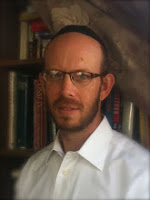For me there was always a difference. Come April 15 I will escort my visiting American students to Mount Herzl where we will hear eulogies for those fallen. We will recite Psalms and grieve for dead Jews – husbands and wives, sons and daughters, brothers and sisters who died or were murdered as noncombatants on sovereign Israeli soil – a modern variation on an ancient theme. We may not care for “Hatikva” or “Jerusalem of Gold,” but we can care enough for tears.
I am, in my synagogue in Jerusalem, a pariah. A self-identified ultra-Orthodox Jew – complete with beard and sidelocks – I twice supported Barack Obama, the candidate my fellow worshipers would hardly mention by name. Back home, in New York, I am a registered Democrat, a political affiliation increasingly unfashionable among my coreligionists. This past November I saw the political conservatism in my congregation mirroring its traditionalist theology. Recognizing a consistent reactionary agenda I shrank from both its expressions, and began assessing my allegiances. [...]
Throughout my
childhood Zionism was mostly ignored, making it natural to pass over
while engaging the spiritual elements of my Jewishness. Barring Rabbi
Abraham Kook (1865-1935), who was viewed as an anomaly, the rabbis I
grew up respecting attached little priority to the State of Israel and I
became ambivalent regarding its being. Israel was at best a side-dish
to the main course of my religion – the study of Torah and eminence of
its laws.
That was then. Now, as I discover my liberal political views at odds with the elitist views of my congregation, I question too their other standoffish platforms – those that relegate Israel to the edge of the plate. Historically opposed to the State of Israel, my rabbi’s rabbi’s rabbis may have argued coherently against its establishment but today, such arguments seem beside the point. A dissent that began in earnest has evolved into a cultural diffidence, empty of clear reason. I cannot argue confidently against the existing Israeli state and more importantly, why would I want to? [...]
That was then. Now, as I discover my liberal political views at odds with the elitist views of my congregation, I question too their other standoffish platforms – those that relegate Israel to the edge of the plate. Historically opposed to the State of Israel, my rabbi’s rabbi’s rabbis may have argued coherently against its establishment but today, such arguments seem beside the point. A dissent that began in earnest has evolved into a cultural diffidence, empty of clear reason. I cannot argue confidently against the existing Israeli state and more importantly, why would I want to? [...]










